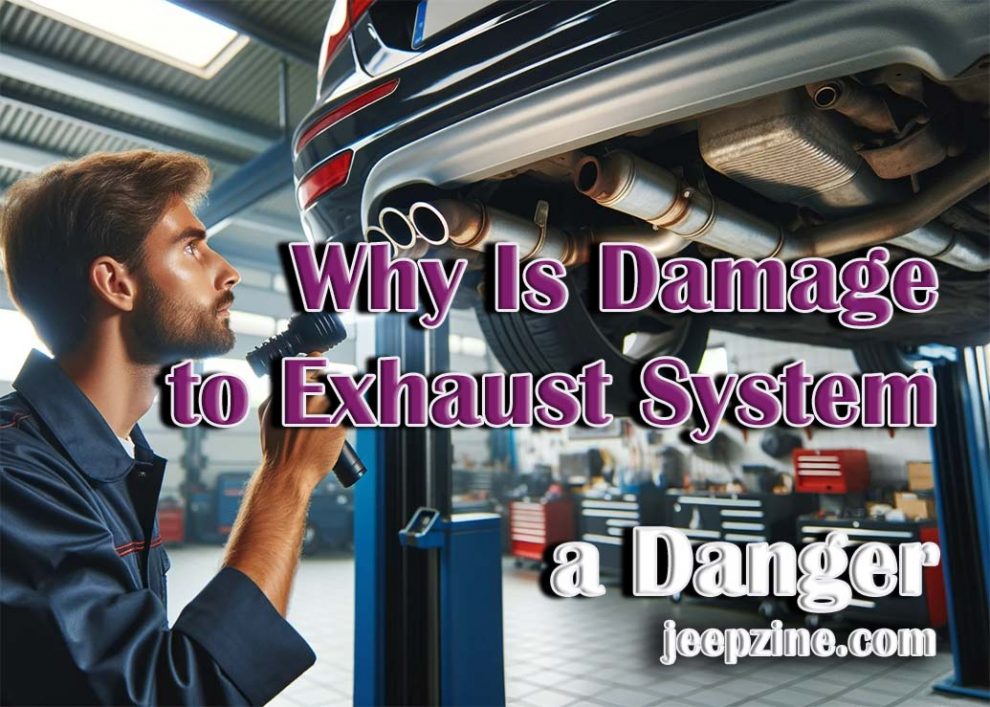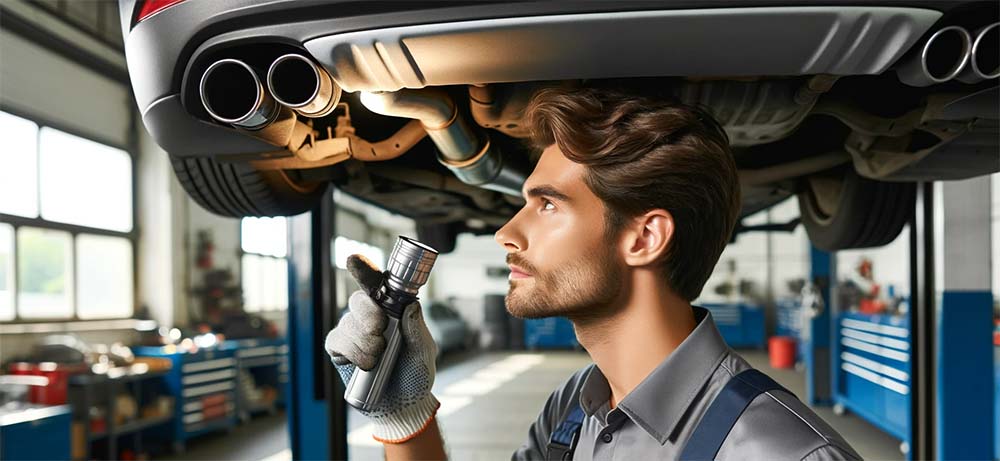The exhaust system on a vehicle serves the very important functions of expelling burnt gases from the engine and reducing the noise from the engine. It is comprised of several key components including the exhaust manifold, catalytic converter, muffler, and tailpipe. Damage anywhere along the exhaust system from the manifold to the tailpipe can allow dangerous exhaust fumes containing carbon monoxide, nitrogen oxides, hydrocarbons, and other toxic chemicals to leak into the passenger cabin. Breathing in these harmful exhaust fumes over an extended period can cause a wide range of health issues from relatively mild symptoms like nausea and dizziness all the way to very serious consequences including loss of consciousness and even death. That is why it is extremely critical to address any issues with the exhaust system right away as soon as any potential problem is noticed.
Dangers of Exhaust Leaks
When there are leaks present in the exhaust system, this enables exhaust gases containing carbon monoxide, nitrogen oxides, hydrocarbons, and various other toxic fumes to enter the cabin space of the vehicle. Carbon monoxide is an extremely dangerous gas that can quickly cause carbon monoxide poisoning. The symptoms of carbon monoxide exposure include headache, nausea, dizziness, confusion and an overall feeling of illness.
As the levels of carbon monoxide increase in the blood, the gas actually starts to bind to hemoglobin in place of oxygen, reducing the oxygen supply being delivered to vital organs such as the heart, lungs and brain. This depletion of oxygen can lead to very serious consequences including unconsciousness, coma, and death. Those who are most at risk from carbon monoxide exposure include pregnant women, small children, the elderly, and individuals who have pre-existing heart or lung conditions. But even relatively small exhaust leaks should never be ignored, as carbon monoxide levels can rapidly rise to lethal concentrations in the enclosed space inside a vehicle.
Signs of Exhaust System Damage
There are several common telltale signs that may indicate damage, wear or leaks in the exhaust system:
- Loud rumbling or roaring noises coming from underneath the vehicle, especially when accelerating
- A metallic rattling or clanking sound from under the car when speeding up
- The smell of exhaust fumes detectable inside the cabin of the car
- Visible exhaust smoke visible coming out from under the vehicle
- The exhaust sounding significantly louder than usual
Additional signs can include reduced engine performance, a noticeable vibration felt underneath the vehicle, and rust accumulation around exhaust components like the muffler, tailpipe, or metal hangers. Drivers should periodically inspect the entire exhaust system including all connections and hangers and get any leaks, dents, or areas with severe rust repaired and addressed by a mechanic as soon as possible.
Preventing and Fixing Exhaust Problems
Performing regular maintenance on the vehicle can go a long way towards preventing exhaust system damage and leaks. This includes inspecting the entire exhaust system including the manifold, catalytic converter, muffler and pipe during routine oil changes and having any visibly worn parts proactively replaced. Small exhaust leaks detected early on in the exhaust manifold gasket or in other connections can often be fixed fairly easily by tightening metal clamps or replacing worn gaskets. However, for more significant damage such as large holes or cracks, mechanics may need to patch or weld pipes, replace longer sections of damaged exhaust pipe, reattach broken hangers or supports, or replace other components. If the catalytic converter becomes severely clogged, it will likely need to be replaced. And severe corrosion may necessitate replacing the muffler, tailpipe or other parts of the system. Properly diagnosing issues and making necessary exhaust repairs helps ensure dangerous exhaust gases can exit the vehicle safely.
Also note that you can read about gmc sierra exhaust systems in another one of our articles. We examine exhaust system options and repairs specifically for GMC pickups.
Conclusion
In summary, the exhaust system plays an extremely critical role in proper engine function and passenger safety. Any damaged, leaking, or corroded exhaust components can allow toxic fumes containing carbon monoxide to enter the cabin, posing a very serious health hazard to the driver and passengers. Warning signs like loud rumbling noises, smells, and visual smoke indicate drivers should get their exhaust thoroughly inspected by a qualified mechanic. With routine maintenance and proper repairs as needed, exhaust damage can be prevented or fixed before dangerous exhaust leakage occurs. Addressing any potential issues with the exhaust promptly is absolutely essential to keep vehicle occupants safe from carbon monoxide and other harmful gases.


